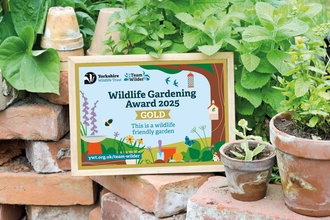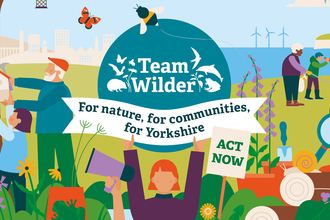Spring has sprung, and for budding gardeners that means it’s time to start planning for the year ahead. This year Yorkshire Wildlife Trust are encouraging gardeners of plots big and small across Yorkshire to consider their local wildlife in their plans. Each week we’re focusing on a different area of wildlife gardening that will make a big difference to your local wildlife, whilst still giving you space to grow your prize-winning tomatoes!
This week we’re looking at ways you can manage your garden for wildlife…
Wild
Making your own compost at home will reduce plastic from compost bags, but if you’re unable to do so then make sure the compost you buy is peat-free. Request peat free plants at the garden centre too. Peat-based compost will be banned for home gardening in 2024 to help our rich peatland habitat and lock in the carbon – a big contributor to our rapidly changing climate.






